Black Professionals in Healthcare Panel: Talking discrimination and career advancement with Student Health Services
On Wednesday, Feb. 19, UC San Diego community members gathered in the bustling Murray’s Place meeting room on the second floor of the Student Health Services building for Black Professionals in Healthcare Panel, hosted by the Career Center. During the discussion, host Dr. Edward Junkins, executive director of Student Health and Well-Being, and a panel of UCSD Health staff highlighted the challenges they face in the field and commented on the inadequate inclusivity practices at UCSD and beyond.
Tay Richardson, gender affirming care coordinator for the Service for Trans, Intersex, and Gender Diverse Experiences program, commented on “the need to go above and beyond just to meet expectations as a Black [person],” both socially and professionally. Junkins added that, while studying at Johns Hopkins University, he quickly realized that, because he was Black, he was socially discouraged from making mistakes or standing out.
“Has anybody in this room ever seen me without a suit and tie — or matching killer socks?” Junkins asked the crowd. “You won’t … because I can’t afford not to.”
Junkins and Ashley Valdez, a clinical nurse at SHS, both recalled receiving baseless accusations from colleagues who claimed they were only hired because they were Black. Valdez had to navigate the University’s human resources department completely alone in 2021, leaving her feeling isolated and ignored.
“My advice to UCSD would be to be, rather than to seem,” said Dr. Kelley Adams, director of quality, risk management, and patient safety at Counseling and Psychological Services. “I feel like UCSD is very happy to seem to be improving [diversity, equity, and inclusion] measures and improving those spaces. I don’t feel like there’s very much interest in actually being that way.”
Cristal Muhammad, safety coordinator and principal radiologic technologist at SHS, said that, if UCSD is serious about hiring a diverse health services staff, they must make conscious efforts to recruit in spaces like the Association of Black Women Physicians.
Junkins concluded the panel with an open invitation to students of color to turn to him for advice and mentorship in medical school applications and careers in health. Despite recent attacks on DEI initiatives in the United States, Junkins was not discouraged: “We’re going to have to come up with other pipelines for representation, because representation matters.”
— Abby Offenhauser, Associate Features Editor and Adeline Rickard, Contributing Writer
We Were Here: A cinematic look at Black history in Renaissance Europe
On Feb. 20 at 5 p.m., UC San Diego’s Black Studies Project and the European studies program hosted a screening of the film “We Were Here: The Untold History of Black Africans in Renaissance Europe,” directed by Italian-Ghanaian filmmaker Fred Kudjo Kuwornu.
The film highlights people of African descent in Renaissance Europe and argues that their history is longer than commonly thought. It tells the stories of prominent figures of African descent in this era, featuring people like João de Sá Panasco, a Black Portuguese court jester who later became a knight in the service of the king; Saint Benedict of Palermo, a Black Sicilian monk who was said to work miracles; and Juan de Pareja, an artist who was born a slave in 1600s Spain and later won fame in the entourage of the court painter Diego Velázquez.
Kuwornu spoke to The UCSD Guardian the day before the screening, sharing that he was inspired to create the film when he noticed the large number of Africans depicted in Renaissance art. He felt that the human stories behind these paintings were underrepresented: who were the people depicted, and what would their lives have been like?
“The visual art of the past — particularly the Renaissance, 16th, 17th, 18th centuries — have a lot of elements that are hidden in plain sight,” Kuwornu said. “I would like for people to look at art in a more critical way, in terms of questioning themselves about the subjects who are portrayed.”
— Alex Reinsch-Goldstein, Senior Staff Writer
Let It Flow: Celebrating cultural practices across the African and Black Diaspora
Every year since 2004, Sixth College erupts into dance, music, and laughter for one lively February evening. This event, called Let It Flow, is the annual celebration of the Black diaspora held by Sixth Residence Life for Black History Month. This banquet and art showcase shares and honors cultures from across the African and Black Diaspora.
The street in front of Sixth College’s West Lawn was lined with tables featuring an array of on-campus programs and resources supporting the Black community. Throughout the night, students also enjoyed a free catered dinner from local Black-owned businesses and had the opportunity to watch performances from several student and local performance groups.
At one table, Sheriyan Bradford, coordinator for UCSD’s Black diaspora and African American studies program, discussed the importance of advertising the area of study to students.
“There’s a lot of erasure of our history that’s going on,” Bradford said. “A lot of students don’t know that we offer this program because it is a STEM-focused school, so having that humanities background and gaining the context … is super important. A lot of students need this knowledge in order to work with different communities.”
At the beginning of the night, the Nigerian Student Association Dance Team performed an Afrobeat-inspired dance for the crowd. Dancers Abby, Tope, and Muna described their experience being on the team, explaining that being part of this group has helped them feel closer to their culture and provided them with a unique opportunity to bond with other Nigerian students.
Capoeira de Valor is a local school of the Brazilian martial art of capoeira for students of all ages, and they came to Let It Flow to perform an improvised dance-like fight. Samir Bouhdary is a member of the school and threw rhythmic spinning kicks during the performance.
“The beauty of capoeira is it’s a very syncretic art coming from Africa to Brazil,” Bouhdary said. He shared how it feels to learn the culture and traditions of capoeira: “You learn to be part of [an] … evolution in the art. When you play capoeira, it’s like conversing with someone else, speaking with them.”
Let It Flow 2025 celebrated the Black diaspora at UCSD, introducing students to valuable campus resources and showcasing engaging performances.
— Abby Offenhauser, Associate Features Editor and Ethan Erickson, Contributing Writer
Navigating oppression: Insights from Black Staff Association’s President’s Day Forum
On Feb. 20, the 17th annual President’s Day Forum invited members and supporters of the Black community to engage in critical conversations with local Black leaders about the current political climate in the United States and its impact on the Black community. UC San Diego’s Black Staff Association hosted guest speakers LaWana Richmond and Civic Link Strategies CEO Tony Young, who led an insightful discussion on how the community can continue to thrive in the face of oppression.
The forum dove headfirst into pressing issues affecting the Black community post-election, including widespread mental and emotional exhaustion, the hurried efforts of some to obtain dual citizenship in preparation for the potential elimination of birthright citizenship in the U.S., and fears of a second Jim Crow era.
“It’s like feeling caught between a rock and a hard place,” BSA Chair Davyda Johnson said to the group. “We are a resilient community, but we’re healing first and foremost. It’s hard not to be human in times like these.”
Richmond guided the panel’s discussion with thoughtful questions for Young about the shrinking role of Black women in U.S. politics, the efficacy of economic protests against companies who have pulled back from inclusive practices, and how the community can take an ethical and progressive approach to systemic change.
“There are certain people who aren’t going to be crying if African-Americans, especially women, step out of [politics],” he said. Addressing anxieties within the community over Black women leaving politics due to growing apathy, Young strongly encouraged the opposite: “If they step out, there’s a vacuum that is also created there.”
During the discussion, Richmond noted that remaining thoughtful and intentional is crucial in the process of systemic change. When asked his thoughts on how this could be achieved, Young said, “We must prepare the smartest and brightest to be able to navigate, advocate, and initiate the issue moving forward in any institution that they work in.”
The President’s Day Forum concluded with an open Q&A segment and final remarks from Young on staying hopeful during challenging times.
“Look at this as a pendulum,” he said. “Sometimes it takes a while for that pendulum to swing back. … Regardless of what they do in D.C., you have your family and your God, if you believe in him. And that can’t be taken away.”
— Karina Oquendo, Contributing Writer
Correction: A quote from the “Black Professionals in Health Care” piece was changed on Feb. 27 to correctly reflect the gender expression of speaker Tay Richardson.







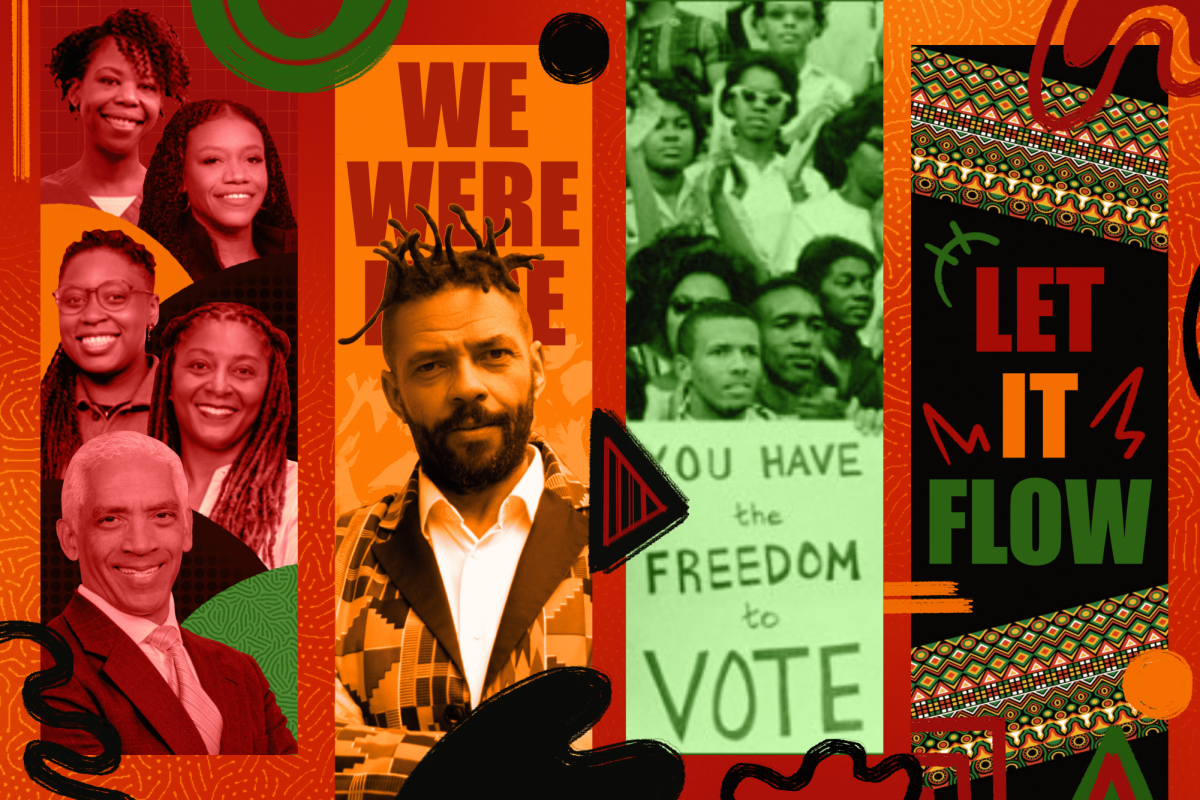
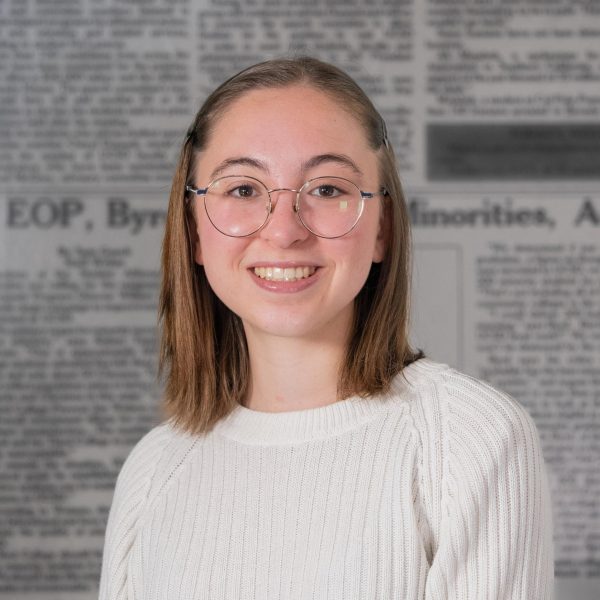
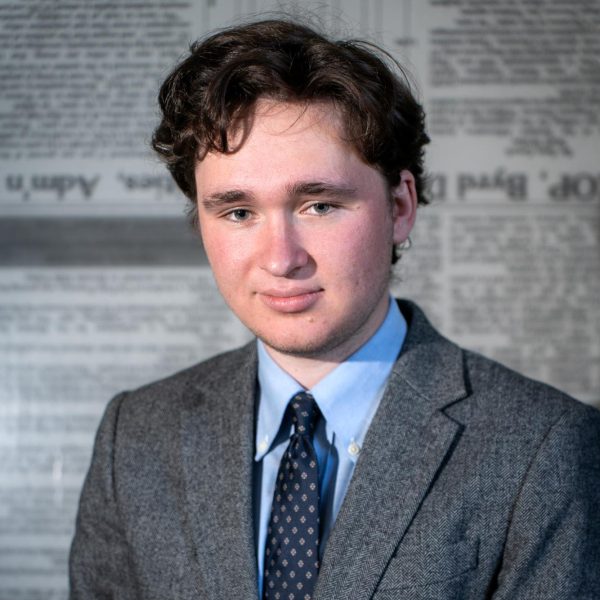
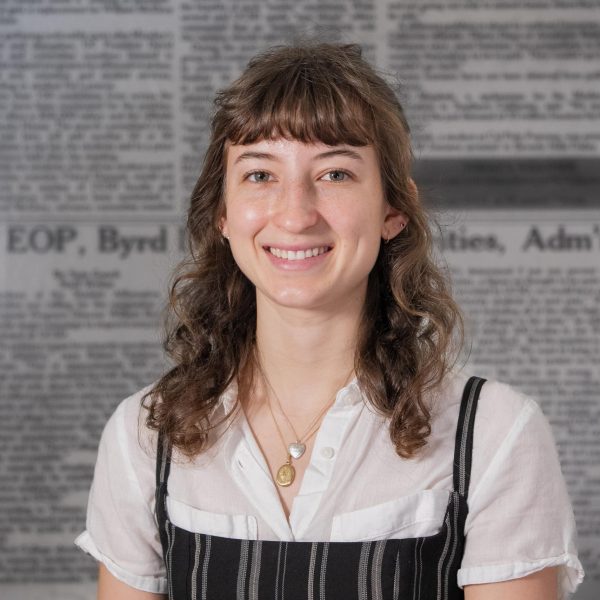
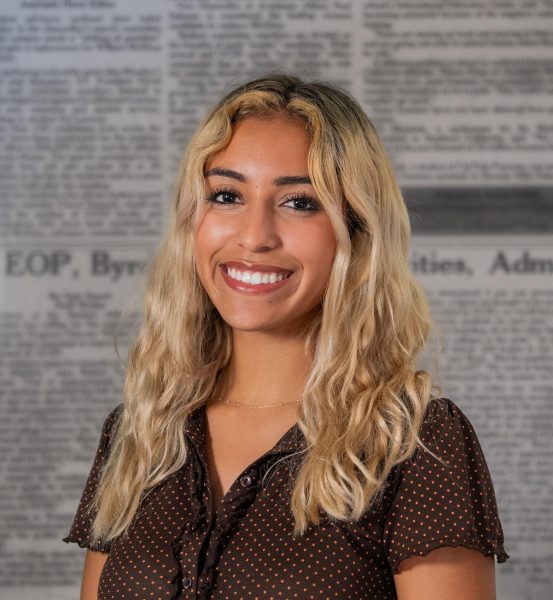
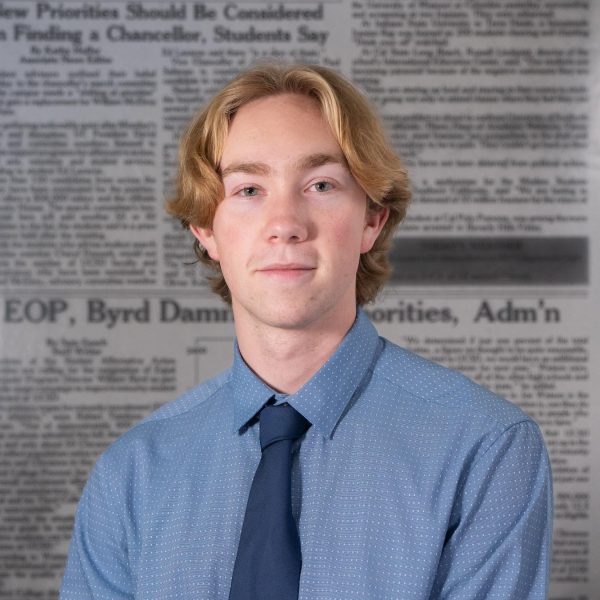





Michael Thomas • Feb 25, 2025 at 3:46 pm
Yet the idea of Women’s History Month, White History Month or Asian History Month are seen as decisive. Can’t wait for this DEI garbage to be eliminated from our campus.
bigplayaslaya • Feb 27, 2025 at 2:36 pm
Women’s history month is March and AAPI heritage month is May